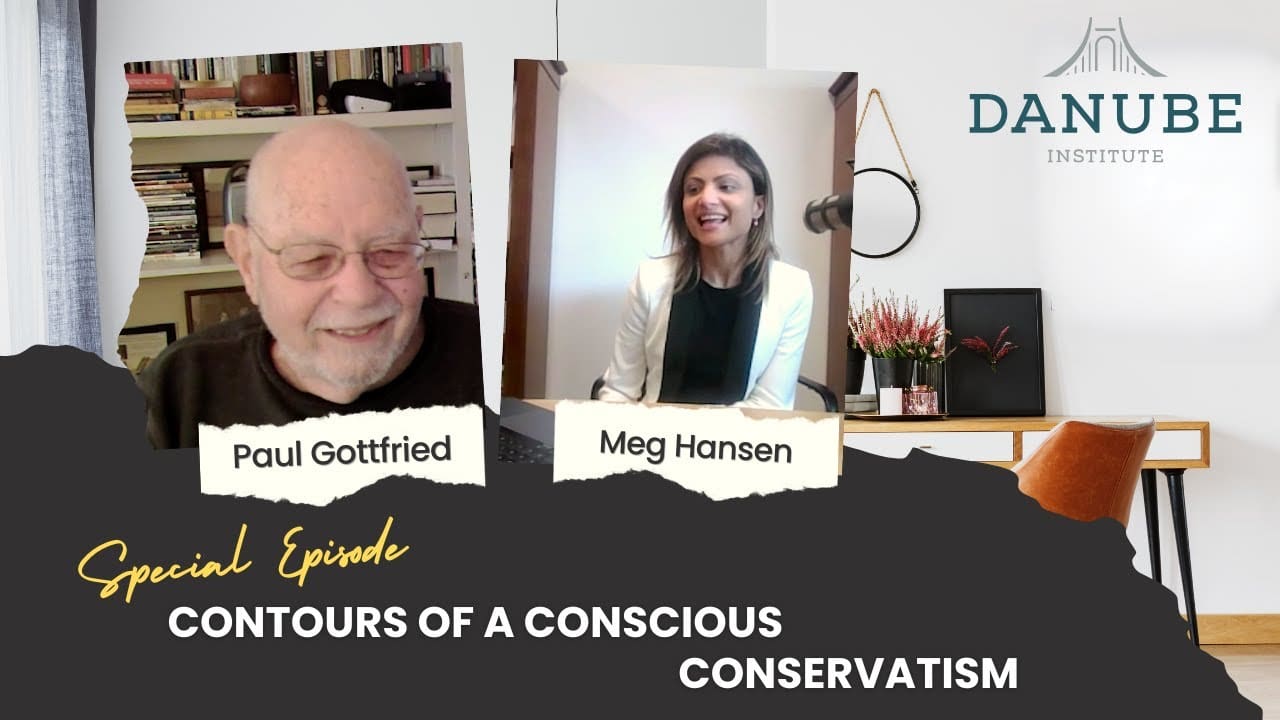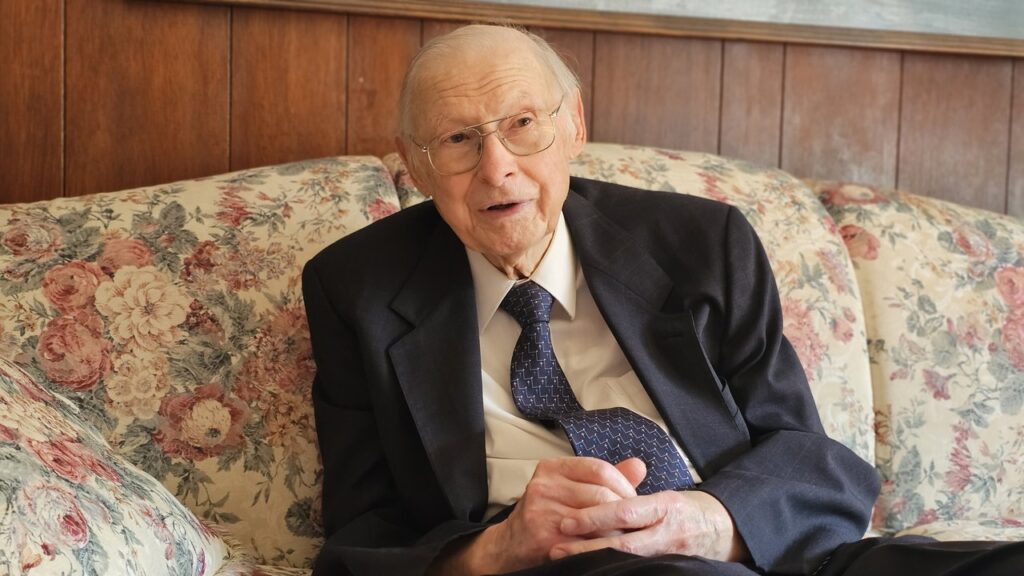The Danube Institute Podcast welcomed guest American philosopher Paul Gottfried on their latest episode. Professor Gottfried is the editor of Chronicles Magazine and authored 14 books during his illustrious career. As host Meg Hansen pointed out in her intro, he is also known for coining the term ‘paleoconservatism’, the meaning of which was discussed in the interview.
The discussion began with Professor Gottfried describing the three different forms of conservatism, as outlined in his essay in Chronicles Magazine, which, as he shared with the audience, was inspired by an article written by Samuel Huntington in the 1950s.
The three concepts of conservatism, as per Huntington and Professor Gottfried, are
the so-called ‘aristocratic conservatism,’ ‘situational conservatism, and ‘value conservatism’.
Situational conservatism, according to Huntington’s definition, always aims to preserve the status quo.
Of the three, Professor Gottfried finds aristocratic conservatism the most authentic; and, despite its name, he opposes value conservatism completely, which he ‘utterly despises’. He views value conservatism as a weak political conviction, which constantly changes to pressure from the liberals. The speaker also accuses the current Republican Party in the United States and the Conservative Party in the United Kingdom of giving up on their principles too easily. This, in his opinion, has resulted in being no ‘surviving conservative tradition’ in the US.
Professor Gottfried believes that conservatism should stand for what it stood for when Edmund Burke wrote his famous Reflections on the French Revolution in 1790, which, as he put it, is in opposition to a constructivist view of government and the repudiation of traditional social roles. Also, ‘they stand for a civilization going back thousands of years, and there are certain principles [on] which they are not going to waver at all’.
ᴀᴀʀᴏɴᴊʜɪʟʟ 🤬 on Twitter: “Three Conceptions of #Conservatismhttps://t.co/H2rAPIQCgr pic.twitter.com/crgpCSWwpe / Twitter”
Three Conceptions of #Conservatismhttps://t.co/H2rAPIQCgr pic.twitter.com/crgpCSWwpe
The professor also prefers the idea of historical, prescribed rights over natural, unenumerated human rights. He and host Hansen then went on to point out that, despite the misconceptions, early American life in the time of the colonies and the War of Independence was never based on individualist views on freedom,
but rather, community-based, conservative, Calvinist ideas.
On today’s political landscape in the United States, Professor Gottfried had this to say:
‘Although I don’t see much of the conservatism that has survived in the United States, I do see a right, and I think the right is different from conservatism. The right is a post-conservative reaction against the left…The old order’s gone.’
However, he then pointed out that the United States is still a more traditionalist society than Western Europe, which he described as a ‘woke cesspool’.
About the philosophy of wokeism, Professor Gottfried elaborated that he views it as a corruption of liberal Protestantism, and points out that the roots of the ideas of social guilt and ‘guilt culture’, which are prominent in woke thought, are actually in American Protestantism. He does not deny the influence of cultural Marxism on contemporary progressive philosophy either. However,
he sees today’s woke movement as ‘the last stage of liberalism’,
with the administrative state, social engineering, and social democracy.
The host and Professor Gottfried also laid their blame on corporate America for propagating wokeism, and pointed out the irony of megacorporations seemingly being on board with Marxism. They also lamented their outsourcing of American jobs to China.
Professor Gottfried spoke with pride about the Hungarian roots of his family, and praised the current Hungarian government and society.
He expressed his disappointment that the United States is not like Hungary today, but a ‘very heterogeneous, ideologically and culturally divided population’. He also made the point that nationalism is much better suited for Hungary than the United States, since the latter, as he put it, ceased to be ‘a historic nation’ in the 20th century.
As for Professor Gottfried’s term paleoconservatism, he defined it as:
‘Looking at the right-left paradigm, the paleoconservatives are the reaction against the left, against the neoconservative. They come into existence from those elements of the right that stand in opposition to neoconservativism.’
Watch The Contours of Conscious Conservatism – A Deep Dive with Paul Gottfried in Full Below
No Title
Professor Paul Gottfried is the foremost philosopher of American paleoconservatism (a term that he coined) and editor of Chronicles magazine. Formerly the Horace Raffensperger Professor of Humanities at Elizabethtown College in Pennsylvania, he has authored 14 books as well as edited an anthology of paleoconservative thought published in 2023.
Related articles:







